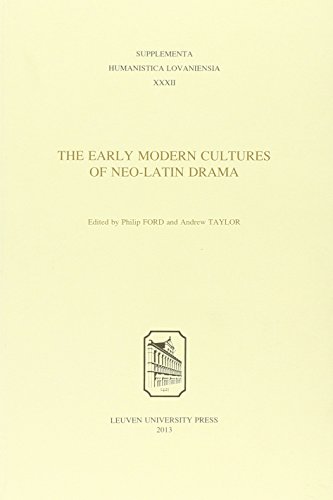

Most ebook files are in PDF format, so you can easily read them using various software such as Foxit Reader or directly on the Google Chrome browser.
Some ebook files are released by publishers in other formats such as .awz, .mobi, .epub, .fb2, etc. You may need to install specific software to read these formats on mobile/PC, such as Calibre.
Please read the tutorial at this link. https://ebooknice.com/page/post?id=faq
We offer FREE conversion to the popular formats you request; however, this may take some time. Therefore, right after payment, please email us, and we will try to provide the service as quickly as possible.
For some exceptional file formats or broken links (if any), please refrain from opening any disputes. Instead, email us first, and we will try to assist within a maximum of 6 hours.
EbookNice Team

Status:
Available4.5
7 reviewsThe essays in this collection all illustrate the vitality of Neo-Latin drama in early modern Europe, arising from its productive combination of classical models with deep-rooted vernacular traditions. While the plays were often composed in the context of a school or university setting, the dramatists seldom neglected the need to appeal to a broad audience, including non-Latinists. Yet the use of Latin, and the ambiguity of a plurivocal literary form, allowed the authors of these plays to introduce messages and ideas that could be subversive of the prevailing political and religious authorities. At the same time, humanist colleges and their Jesuit successors were quick to see the educational advantages to be derived from staging plays performed by pupils, which had the advantage of acting as powerful advertisements for the schools. Neo-Latin drama in all its forms offered a freedom of expression and form rare in other Renaissance literary genres.
Contributors: J. Pascual Barea, Universidad de Cádiz; J. Bloemendal, Huygens Institute, KNAW, The Hague; E. Borza, Université catholique de Louvain; J. De Landtsheer, KU Leuven–University of Leuven; A. Eyffinger, Huygens Institute, KNAW, The Hague; C. Ferradou, Université de Provence; S. Knight, University of Leicester; J. Loach, Cardiff University; H. B. Norland, University of Nebraska, Lincoln; V. Coroleu Oberparleiter, University of Salzburg; O. Pédeflous, Paris IV and Institut Thiers; C. Ryan, Merton College, Oxford; M. Verweij, Royal Library of Belgium